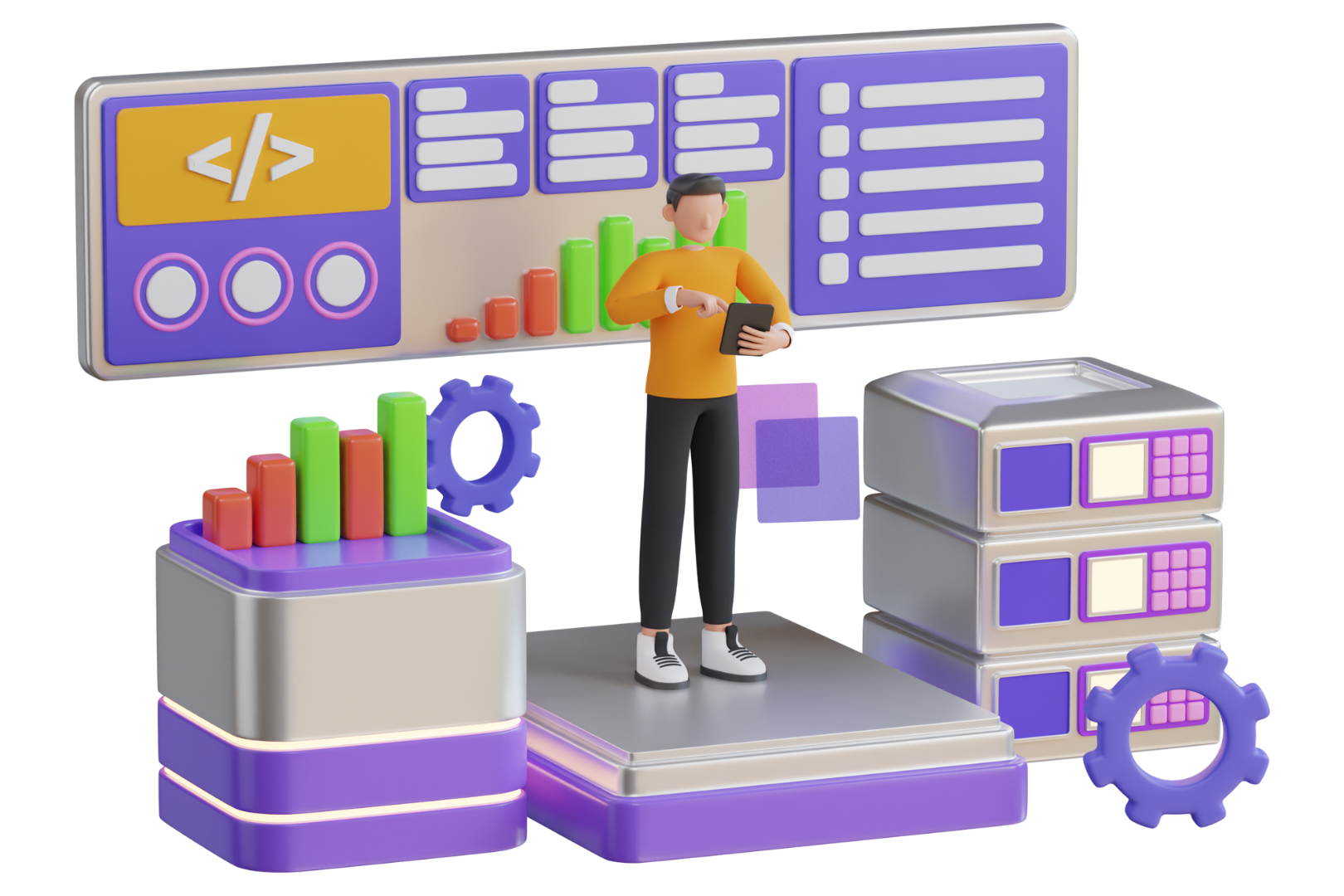Have you ever managed hospital inventory and vowed never to do it again? The complexities of tracking medical resources, recording expired and new medicines, managing patients’ healthcare data, dealing with overstocking and understocking, and handling everything small and big found in a healthcare facility can be overwhelming.
At the same time, it is absolutely critical in the healthcare industry to record and manage complicated inventory tasks in a timely fashion to ensure seamless healthcare operations. Moreover, delivering quality patient care depends on efficient inventory management. So, advanced healthcare inventory software cannot be overlooked in any way.
This article delves into understanding the role of hospital inventory management system, its robust features and outlines key considerations for enterprises to keep in mind while developing healthcare inventory management software.
Defining Hospital Inventory Management System
Take a moment to think about how a hospital management team accurately monitors, provides and optimizes its medications, equipment and supplies, such as pens, notepads, gloves, syringes, and life-saving drugs. An excel sheet simply won’t do the justice.
A Hospital Inventory Management System, also known as Healthcare Inventory Management, is a process that monitors the health system’s stocks, bookings, payments, and other information. An inventory management system helps healthcare organizations to order and administer medications, keep an eye on medical supplies, or sell consumers health products. Major companies may prevent product and financial losses by using inventory management solutions, which keep an accurate and current record of all resources and commodities.

Why is Hospital Inventory Management Important?
As a healthcare professional in a sizable organization, keeping track of medical supplies and inventory can be both stressful and challenging. To manage medical supplies on a larger scale, you will require hospital inventory management software, so that you can focus dedicatedly on providing high-quality patient care.
We want to shed some light on the following points regarding the significance of hospital inventory management system:
- Operational Efficiency:
By investing in a hospital inventory management software, you can significantly boost your operational efficiency and reduce medical waste.
- Digitized & Paper-Less Data:
Virtual inventory management reduces dependency on paper-based data and eliminates errors from operational procedures. People can organize their information and inventories more effectively and efficiently by using paperless data solutions.
- Automation of Ordering Medicines & Disposables:
An advanced healthcare inventory software offers advanced automation benefits. You can integrate your IT environment with your vendor’s software and automate reordering of pharmaceuticals and disposables based on your predefined algorithms.
- Better Communication:
A customized healthcare inventory management system enhances communication between administration and other stakeholders to provide improved supervision for patients’ care and delivery of hospital supplies and equipment.
- Protection of Instruments & Equipment:
Inventory management makes it possible to trace and monitor the whereabouts of equipment continuously, hence it acts as an efficient deterrent against theft.
- Higher Inventory Accuracy:
Inventory management software is important in effective scanning of barcodes. This leads to faster and more precise item identification, fewer mistakes, and higher inventory accuracy.
- Electronic Health Record (EHR) Integration:
Inventory and patient care systems can communicate with one other effortlessly thanks to integration with EHR systems. Following that, physicians and healthcare professionals get up-to-date information about medical supplies.
- Forecasting Demand
Predictive analytics is used by hospital inventory management software to forecast demand for medical supplies. Hospitals benefit from this by cutting waste and optimizing inventories.
- Costs Reduction
Finally, hospital facilities can save a lot of money by using Hospital Inventory Management Software. Effective management can reduce hospital inventory holding expenses by as much as 40%.
Key Benefits of an Advanced Healthcare Inventory Software
Using a successful healthcare management system renders a number of benefits as follows:
1. Cost Savings
Employing a useful healthcare inventory management system significantly saves costs by carefully keeping a check on inventory levels and saving you from the hassle and financial pitfalls of underordering and overstocking.
2. Availability of Equipment & Supplies on Time
Inventory workers frequently have to spend a lot of time searching the warehouse for what they need. The exact location of the inventory is tracked by the inventory system. This facilitates employees to locate what they need without waiting for long. As a result, patients are happier when they get on time medical services.
3. Enhanced Staff Efficiency
Automation of inventory-related tasks allows your staff to be vigilant in other important chores such as patient care and handling their concerns. If you’re using a successful inventory software, you’re releasing your staff from time-consuming manual processes.
4. Timely Check the Condition of the Equipment
Healthcare management cannot tolerate any delays or malfunctions. Therefore, all your tools and equipment need to be in perfect operating condition. Inventory systems allow you to keep an eye on the state of your equipment, respond quickly to malfunctions and breakdowns, and plan maintenance or replacements before problems arise.
Resilience in a Tailor-Made Hospital Inventory Management Software
The healthcare industry can choose from commercial off-the-shelf (COTS) software and tailored software for managing hospital inventory based on the requirements, budget and timeline to deploy the hospital management software.
A packaged healthcare management software deploys quickly, can be efficiently managed and maintained, and is a cost-effective option. On the flip side, a custom-made hospital inventory management software satisfies the special needs of the specific workflows, inventory kinds, and methods used in your hospital. It can be designed to work in unison with the other systems in your hospital. Moreover, it offers special features as per your demand that aren’t found in off-the-shelf software.
Specific Practices to Create a Well-Functioning Hospital Inventory Management System
There are several best practices that are used to establish a well-functioning healthcare management system in your hospital, including:
First Things First – A Database
Keeping an extensive inventory database for tracking goods and equipment is one of the best practices for inventory management. For the purpose of making educated judgements and maximizing its use, it must include information such as location, quantity, and expiration dates. For precise tracking, a well-organized database will therefore guarantee a better inventory management procedure.
Invest in a Tracking System
To improve inventory management in healthcare facilities, invest in a cutting-edge, automated solution. It will support smooth procurement and real-time supply chain monitoring. For accuracy, you can also attach a connection to the inventory database to each item’s identifier.
With the use of bar codes and tags, this best practice can enhance inventory management for healthcare professionals, pharmacy employees, and medical equipment.
Clearly Assign Responsibilities
One of the best strategies is to assign responsibilities to every team member in your hospital inventory system. This helps you achieve better accountability. It can assist in allocating tasks like placing supply orders, keeping track of consumption, and checking inventory minimums. As a result, you can equip the group with task execution training.
Learn About Usage Trends for Medical Equipment
Aim to maximize inventory, ensure that it is used correctly, and look for bottlenecks. Making better judgements in collaboration with medical leaders would be facilitated by adopting a data-driven strategy. You can collaborate with clinical leadership and make better decisions by using a data-driven strategy.

Putting Supply Management Systems in Place
You may apply inventory management strategies to the healthcare industry as well as other businesses like supply chain management. It will ease documentation, reporting, and compliance while assisting you in avoiding human error and guaranteeing accuracy.
To prevent an unneeded situation, be careful to set clear protocols for ordering and replenishing. Physicians and hospital administrators can be more productive by easily maintaining equipment and keeping an eye on the environment. This can simplify processes, save time and money.
Securing Your Sensitive Data
Every healthcare professional is aware of HIPAA, which protects patient medical records from unwanted access. Since your stockpile is what allows you to provide care for the people you treat, it is imperative that you keep your inventory system operating at the same level of security.
Conclusion – Preparing Healthcare Management Software for the Future
On the healthcare side, the emerging technology trends such as AI, Blockchain, cloud-based solutions, data analytics and visualization and green initiatives and many more are helping all the stakeholders see the bigger picture. Traditional hospital inventory management systems have multiple drawbacks, so when challenges spiked to a great extent, healthcare professionals and administrators understood that they needed advanced healthcare inventory software.
Hospital inventory management software development is the key to operational efficiency, cost-saving, enhanced patient care, resiliency and efficiency. It enables inventory staff to pinpoint where items are within an inventory and even beyond, such as if there is a backorder at a vendor organization. Modern technology is also bridging the gap between healthcare management and the team for greater efficiency and resources optimizations.
It’s time to reinvent your hospital inventory management software development. Stackup Solutions is ready to help you create an advanced, bespoke and intelligent hospital inventory management system. Are you ready to embark on an efficient and cost-effective future? We’re here to discuss your roadmap!
Frequently Asked Questions (FAQs)
1. What is the role of inventory management in hospitals?
Hospital inventory management software development plays an important role in optimizing costs, resources, inventory and time for the inventory staff. In hospitals, efficient inventory management minimizes waste, optimizes inventory levels, and helps avoid stockouts. Additionally, it helps healthcare providers maintain regulatory compliance, monitor expiration dates and ensure the availability of the right equipment at the right time.
2. Can you give an estimated cost to develop a hospital inventory management software?
The cost of developing a hospital inventory management software hinges on various factors such as timeline, features complexity, customization and integration requirements and project scope. Therefore, we cannot quote the exact figure to discuss the cost. If you want to know accurate cost estimates, reach out to us, discuss your requirements and let’s get onboard for your dream project!
3. How to choose the right hospital inventory management software for your needs?
Hospitals should evaluate the system’s usability, scalability, simplicity of integration, reputation of the manufacturer, customer support, and overall cost. Investigate thoroughly and verify suppliers. Nonetheless, hospitals can select software that best suits their needs with the help of hospital management software.
4. Why develop a custom hospital inventory management software over choosing a pre-built one?
Being in the healthcare industry, you should comprehensively analyze why to choose a customized hospital inventory management software over a commercial off-the-shelf one.
Look for specific workflows, unique needs, and requirements that a packaged software may not accommodate. Your hospital may have custom scalability and integration needs – that a custom inventory management software can seamlessly fulfill.







